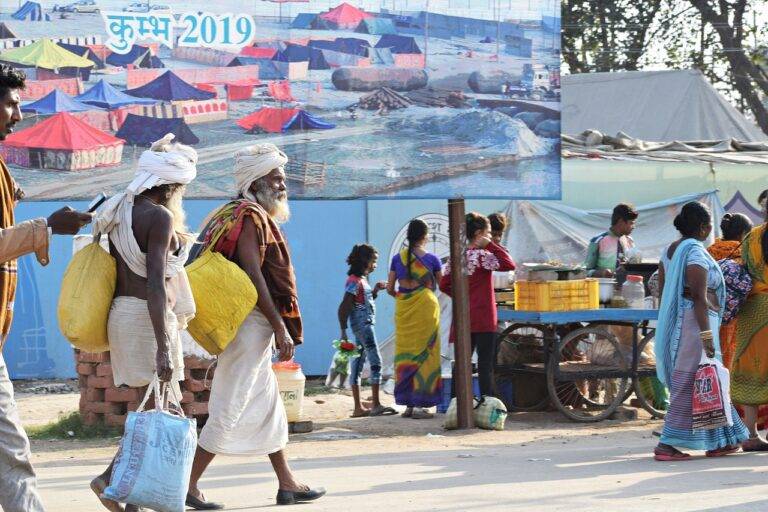Analyzing the Impact of Disinformation on Election Trust
lotus365 book, playexch 99, all panel .com:Disinformation has become a prevalent issue in today’s society, especially during election seasons. The spread of false information and misleading content online can have a significant impact on voters’ trust in the electoral process. In this article, we will analyze the impact of disinformation on election trust and explore ways to combat this growing problem.
Introduction
Disinformation, also known as fake news, is defined as false or misleading information spread intentionally to deceive people. With the rise of social media and online platforms, it has become easier for misinformation to spread rapidly and reach a large audience. During election seasons, disinformation campaigns can have a detrimental effect on the public’s trust in the electoral process.
The Impact of Disinformation on Election Trust
1. Undermining Democratic Values
Disinformation can undermine the democratic values of transparency and accountability. When false information is spread about candidates or political parties, it can create confusion and distrust among voters. This can lead to a lack of faith in the electoral system and the legitimacy of election results.
2. Polarizing Society
Disinformation can also polarize society by spreading divisive and inflammatory content. When people are exposed to misleading information that reinforces their biases and prejudices, it can deepen ideological divides and create hostility between different groups. This can make it challenging for voters to make informed decisions based on facts and rational arguments.
3. Impairing Media Credibility
The spread of disinformation can impair the credibility of traditional media outlets and reputable news sources. When false information is presented alongside accurate reporting, it can be challenging for the public to discern the truth. This can erode trust in the media and make it easier for malicious actors to manipulate public opinion.
4. Increasing Skepticism
Disinformation can also increase skepticism and cynicism among voters. When people are bombarded with false information on a regular basis, they may become distrustful of all sources of news and information. This can lead to apathy and disengagement from the political process, as voters may feel overwhelmed and confused by the sheer volume of misinformation.
5. Influencing Election Outcomes
One of the most significant impacts of disinformation on election trust is its potential to influence the outcome of elections. By spreading false information about candidates or political issues, malicious actors can sway public opinion and manipulate the electoral process. This can undermine the integrity of elections and weaken the legitimacy of the democratic process.
Combatting Disinformation
1. Promoting Media Literacy
One of the most effective ways to combat disinformation is to promote media literacy among the public. By teaching people how to critically evaluate news sources, fact-check information, and spot false narratives, we can empower voters to make informed decisions and resist manipulation by malicious actors.
2. Fact-Checking
Fact-checking organizations play a crucial role in debunking false information and holding public figures accountable for spreading misinformation. By supporting fact-checking initiatives and verifying the accuracy of news stories, we can help to combat the spread of disinformation and uphold the integrity of the electoral process.
3. Strengthening Cybersecurity
Cybersecurity measures are essential for protecting election systems and safeguarding against foreign interference. By investing in secure voting technologies, monitoring for online threats, and collaborating with international partners to address disinformation campaigns, we can reduce the risk of manipulation and ensure the integrity of elections.
4. Encouraging Transparency
Transparency is key to building trust in the electoral process. By promoting openness and accountability in political campaigns, candidates can demonstrate their commitment to honesty and integrity. By disclosing campaign funding sources, communicating openly with voters, and addressing concerns about disinformation, candidates can help to build trust and credibility.
5. Supporting Independent Journalism
Independent journalism plays a crucial role in exposing disinformation and holding those responsible to account. By supporting local media outlets, investigative reporters, and fact-checking organizations, we can help to strengthen the quality of news reporting and promote a more informed public discourse.
Conclusion
Disinformation poses a significant threat to election trust and the integrity of the democratic process. By understanding the impact of fake news on society and taking proactive steps to combat misinformation, we can protect the credibility of elections and uphold democratic values. By promoting media literacy, fact-checking, cybersecurity, transparency, and independent journalism, we can create a more informed and resilient society that is resistant to the spread of disinformation.
FAQs
Q: How can I spot fake news?
A: Look for credible sources, check the date and author of the article, and cross-reference information with multiple sources before sharing.
Q: What should I do if I encounter disinformation?
A: Report it to the platform where you found it, fact-check the information, and educate others about the importance of verifying news sources.
Q: Are there laws against spreading fake news?
A: Some countries have implemented laws to combat disinformation, but it is essential to balance freedom of speech with the need to protect against harmful misinformation.
Q: How can I support efforts to combat disinformation?
A: Stay informed about the latest developments in the fight against fake news, support fact-checking organizations, and advocate for transparency and accountability in the media and political spheres.







